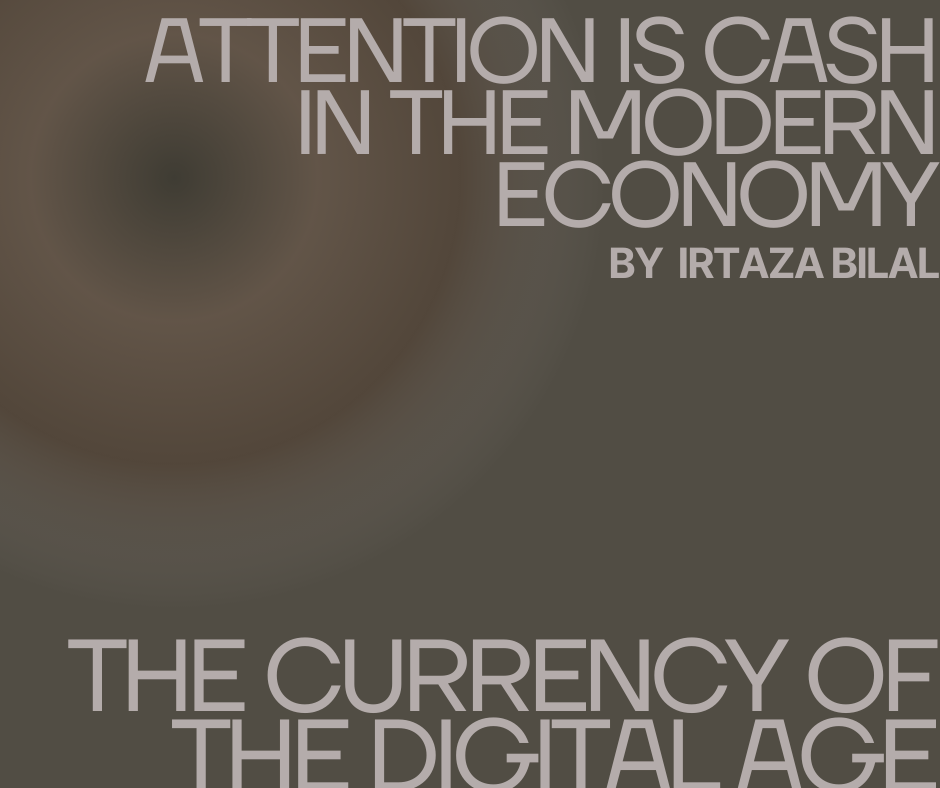Attention Is Cash In The Modern Economy: The Currency of the Digital Age
In the digital age, our world is constantly bombarded with information. From the moment we wake up to the time we go to bed, our attention is pulled in every direction. We check our emails, scroll through social media, binge-watch streaming services, and engage in various online activities. This proliferation of content and the battle for our attention have given rise to a new concept: attention is the currency of the modern economy.
The Attention Economy
In the not-so-distant past, economic transactions primarily involved the exchange of tangible goods and services. Money was the medium through which value was transferred, and traditional economic models focused on production and consumption. While these aspects are still vital, the digital age has introduced a significant shift in how the economy operates.
The attention economy is a concept that highlights the increasing value placed on people’s attention. It’s a realm where businesses and individuals alike compete for a limited resource: our focus and engagement. Whether it’s a viral YouTube video, an eye-catching advertisement, or a gripping social media post, the attention economy is all about capturing and holding our interest.
The Battle for Your Attention
Consider your typical day: you wake up to the chimes of your smartphone’s notifications. You check your emails, respond to messages, and perhaps scroll through your favorite social media platforms. Throughout the day, you encounter countless advertisements, pop-ups, and clickbait articles, all vying for your precious attention.
In this digital age, businesses understand that the more attention they can garner, the greater their potential for success. Companies spend vast sums on marketing campaigns, web design, and content creation, all in the pursuit of your attention. Why? Because attention leads to engagement, and engagement often leads to conversion – the ultimate goal of the modern business.
Monetizing Attention
Not only businesses but also content creators have found innovative ways to monetize our attention. YouTube, for example, provides content creators with ad revenue based on the number of views their videos receive. Similarly, social media influencers can earn substantial income through sponsored posts and affiliate marketing. These revenue streams all depend on their ability to capture and maintain their audience’s attention.
The concept of monetizing attention extends to traditional media as well. Television networks rely on advertising revenue, and the price for ad slots during popular shows or live events can be astronomical. The Super Bowl, for instance, is known for its high-priced commercials that capture the attention of millions of viewers.
The Impact on Our Lives
The attention economy doesn’t just affect businesses and content creators; it has profound implications for our daily lives. Our digital devices have become both tools and battlegrounds for capturing attention. While we enjoy the convenience of staying connected and informed, the constant bombardment of information can lead to information overload and distract us from our personal and professional goals.
The addictive nature of social media platforms, streaming services, and smartphone apps has prompted concerns about the erosion of our ability to focus and think deeply. However, It’s not uncommon for people to spend hours scrolling through social media feeds, often without a clear purpose or benefit.
Strategies to Navigate the Attention Economy
In a world where attention is cash, it’s crucial to develop strategies for managing and protecting your focus. Here are a few tips to help you navigate the attention economy:
- Set Priorities: Identify what matters most to you and allocate your attention accordingly. By setting clear priorities, you can reduce the time spent on distractions.
- Time Management: Implement time management techniques, such as the Pomodoro Technique or time blocking, to structure your day and enhance productivity.
- Mindfulness: Practice mindfulness to become more aware of how you allocate your attention. Moreover, Mindfulness can help you make deliberate choices about where to focus your time and energy.
- Digital Detox: Periodically disconnect from digital devices and platforms to recharge and refocus your attention on the real world.
- Content Curation: Choose the content you engage with wisely. Unfollow, mute, or unsubscribe from sources that consistently waste your time and attention.
- Limit Multitasking: Multitasking can be a productivity killer. Focus on one task at a time to accomplish more and maintain higher quality work.
- Educate Yourself: Understand the tactics that businesses and content creators use to capture your attention. Knowledge is a powerful tool for making informed choices about where you invest your focus.
Conclusion
In the modern economy, attention is indeed a valuable currency. It’s the force that drives marketing, content creation, and even personal interactions. While the attention economy has brought about incredible innovations and opportunities, it has also introduced new challenges to our ability to focus and make intentional choices about where we invest our time and energy.
To thrive in this attention-driven world, it’s essential to recognize the value of your attention and take control of how you allocate it. Lastly, By implementing strategies to manage your focus and navigate the attention economy effectively, you can ensure that your attention remains an asset rather than a liability in your life.

